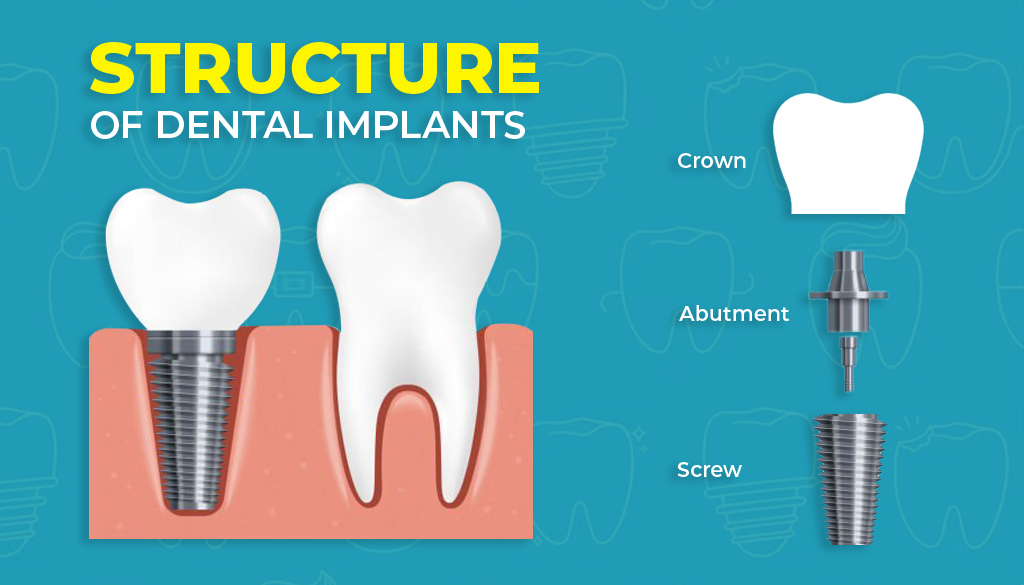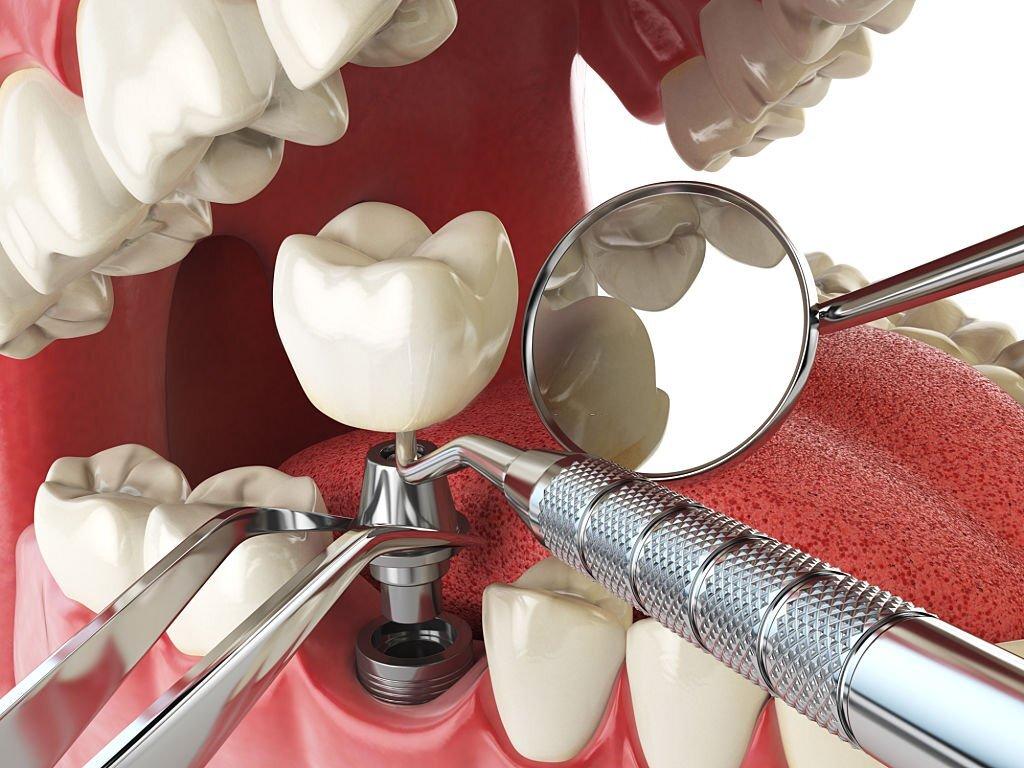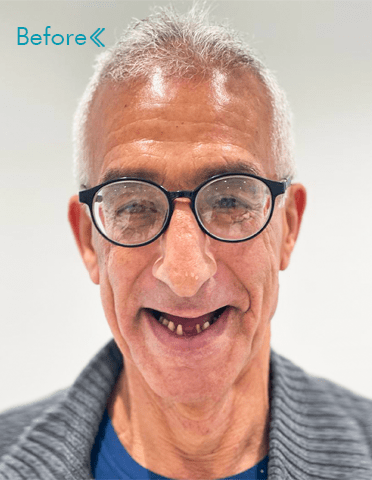A Comprehensive Guide to Dental Implants in North Cyprus: The Permanent Solution for Missing Teeth
Are you tired of dealing with the challenges of missing teeth, affecting both your confidence and ability to enjoy life to the fullest? Are you looking for a permanent solution that combines exceptional quality and stunning results to restore your smile and self-esteem? Look no further than Harun Yildirim Dental Clinic & Surgery in Kyrenia. A rapid growing destination for dental implants and dental tourism in North Cyprus, we are prominently located on the east coast of the island.
Welcome to our full guide on dental implants, specific to general dentistry as well as to dentistry in North Cyprus. Here we will uncover all the renovative benefits that dental implants provide in transforming your smile and restoring your oral health.
By the end of this comprehensive read, you will gain valuable insights into the cutting-edge techniques, personalised care, and state-of-the-art technology available for dental implants in Kyrenia, North Cyprus. From the initial assessment to the final restoration, we will guide you every step of the way, ensuring your comfort, satisfaction, and long-lasting results.
WHAT ARE DENTAL IMPLANTS?
In the field of restorative dentistry, dental implants have revolutionised the way we restore missing teeth. Unlike traditional bridges or removable dentures, dental implants offer a permanent and natural-looking solution.
Dental implants provide a remarkable alternative for replacing missing teeth, offering both aesthetic and functional benefits that go beyond traditional alternatives. Functioning as artificial tooth roots, dental implants provide a stable foundation for dental restorations and ensure long-term durability.
MAIN COMPONENT OF DENTAL IMPLANTS
A dental implant consists of three main components: the implant fixture, abutment, and dental crown.
1. Implant Fixture
The implant fixture is a small titanium post that is surgically placed into the jawbone. It serves as the anchor for the dental implant, mimicking the function of a natural tooth root. Titanium's biocompatibility allows the implant to consequently fuse with the jawbone through a process called osseointegration. In turn, this provides a stable and permanent foundation for the replacement tooth.
2. Abutment
Once the implant fixture has integrated with the jawbone, an abutment is attached to it. The abutment serves as a connector between the implant fixture and the dental crown. It is custom-made to ensure a proper fit and is designed to emerge above the gumline.
3. Dental Crown
The dental crown is the visible part of the dental implant, resembling a natural tooth. It is custom-crafted to match the shape, size, and colour of your existing teeth, providing a seamless and natural-looking result. The crown is securely attached to the abutment, completing the restoration process.
Dental implants not only offer a permanent solution for missing teeth but also provide several advantages over traditional options. They prevent bone loss in the jaw, maintain facial structure, and allow for improved chewing ability and speech.

INITIAL ASSESSMENT AND TREATMENT PLANNING
Before embarking on your dental implant journey in North Cyprus, an initial assessment and treatment planning process is essential. This phase ensures that your dental implant treatment is tailored to your specific needs and considerations. Let's explore the key aspects of this crucial stage:
1. The Initial Consultation
- During your initial consultation, the dental team will take the time to understand your dental history, concerns, and treatment goals. Open communication is encouraged to address any questions or doubts you may have.
- Dental examinations will be conducted to evaluate your oral health, including the condition of your teeth, gums, and jawbone. This assessment helps determine your eligibility for dental implants and identifies any underlying oral health issues required to be addressed.
2. X-rays and 3D Scans
- X-rays and 3D scans play a vital role in the evaluation and planning of dental implant treatment. These diagnostic imaging techniques provide detailed information about your jawbone structure, bone density, and presence of any potential complications.
- X-rays help determine the quantity and quality of the jawbone, which is crucial for successful implant placement. 3D scans, such as cone beam computed tomography (CBCT), offer a three-dimensional view, enabling precise implant placement planning.
3. Customised Treatment Plans
- Based on the findings from the initial assessment, a personalised treatment plan will be developed. This plan takes into account your specific oral health needs, aesthetic preferences, and functional requirements.
- Each treatment plan is uniquely tailored to ensure the best possible outcome. Factors such as the number of implants needed, the need for bone grafting or sinus lift procedures, and the timeline of the treatment will be considered.
- Accordingly, the treatment plan will be thoroughly explained to you, including the steps involved, the estimated timeline, and the associated costs. This ensures that you have a clear understanding of the proposed treatment and can make informed decisions.
At our clinic, we prioritise patient-centred care and work closely with you to create a treatment plan that aligns with your goals and expectations. We believe that a comprehensive and individualised approach is key to achieving optimal results.
OSSEOINTEGRATION AND HEALING PERIOD
Once the dental implants are placed, a critical process called osseointegration takes place. This involves the fusion of the implant fixture with the jawbone, ensuring a stable and long-lasting foundation for your dental restoration. Let us explain this sequence and the healing period associated with dental implant treatment:
1. Osseointegration
- Osseointegration is a natural biological process that occurs over time, typically taking several months. During this process, the implant fixture, made of biocompatible titanium, becomes integrated with the surrounding jawbone. The fusing process simultaneously takes place while a patient heals from dental implant treatment.
- The titanium surface of the implant stimulates the bone cells to grow and adhere to its structure, forming a strong bond. This fusion between the implant and the jawbone provides stability and support for the final dental restoration.
2. Healing Period
- The healing period after implant placement is crucial to the success of the osseointegration process. It allows time for the implant to integrate with the jawbone and ensures its long-term stability.
- The average healing period can vary depending on individual factors, but it usually ranges from three to six months. During this time, it's important to follow your dentist's instructions and maintain good oral hygiene practices.
3. Factors Affecting Healing of Dental Implants
Oral Hygiene:
Maintaining proper oral hygiene is essential during the healing period. Regular brushing, flossing, and rinsing with an antimicrobial mouthwash help keep the implant site clean and minimise the risk of infection.
Overall Health:
Certain systemic conditions, such as diabetes or autoimmune disorders, may affect the healing process. It's important to inform your dentist about your overall health and any medical conditions you may have.
Smoking:
Smoking can significantly impact the healing of dental implants. The chemicals in tobacco products can impair blood flow and delay the osseointegration process. It is highly recommended to quit smoking during the healing period.
Bone Quality:
The density and quality of your jawbone can also influence the osseointegration process. In cases where the jawbone lacks sufficient volume, bone grafting or other augmentation procedures may be required to enhance the implant's stability.
During the healing period, follow-ups with your dentist will be scheduled to monitor this progress. X-rays or other imaging techniques may be used to evaluate the integration of the implant with the jawbone.
Remember, patience and adherence to post-operative instructions are crucial for successful osseointegration and the long-term success of your dental implants.
ABUTMENT PLACEMENT AND IMPRESSIONS
After the fusing period, the next stage of the dental implant procedure involves the placement of the abutment and taking impressions. This stage is crucial for creating a customised dental crown or prosthetic restoration that seamlessly blends with your natural teeth. Let's explore this process in more detail:
1. Abutment Placement
- Once the implant has successfully integrated with the jawbone, a minor surgical procedure is performed to expose the implant fixture.
- An abutment, which serves as a connector between the implant fixture and the dental restoration, is securely attached to the implant. The abutment emerges above the gumline, allowing access for the placement of the dental crown or prosthetic restoration.
2. Impressions
- Taking accurate impressions is essential for creating a customised dental crown or prosthetic restoration that fits perfectly with your existing teeth.
- During this step, dental impressions are made using specialised dental putty or digital scanning technology. These impressions capture the shape and position of the abutment and surrounding teeth, ensuring a precise and comfortable fit of the final restoration.
- The impressions are then sent to a dental laboratory where skilled technicians will use them as a guide to fabricate your personalised dental crown or prosthetic restoration. The colour, shape, and size of the restoration are carefully crafted to match your natural teeth and enhance your smile.
3. Temporary Restoration
- In some cases, a temporary restoration may be placed over the abutment while the final restoration is being fabricated in the dental laboratory. This temporary restoration serves both functional and aesthetic purposes, allowing you to maintain normal oral function and appearance during the waiting period.
4. Collaborative Approach
- At our clinic, we adopt a collaborative approach, involving both the dentist and the dental laboratory technician. This ensures that the final restoration is meticulously crafted to meet your unique specifications and expectations.
Throughout the abutment placement and impression process, your dentist will provide guidance and explain the steps involved. We encourage open communication to address any concerns or questions you may have.
DENTAL CROWN PLACEMENT
The final step of the dental implant process involves fitting the dental crown, which is securely attached to the abutment. This step is crucial for achieving a natural-looking and functional result that blends seamlessly with your existing teeth. Let's explore this final treatment stage in more detail:
1. Securing the Dental Crown
- Once the dental laboratory completes the fabrication of your customised dental crown, it is time for its placement. The dentist will ensure that the crown fits properly over the abutment and blends harmoniously with your natural teeth.
- The crown is carefully positioned and secured onto the abutment using dental cement or adhesive, ensuring a stable and durable bond.
2. Bite Alignment
- Achieving proper bite alignment is essential for a functional and comfortable result. Your dentist will check the alignment of your dental crown with your opposing teeth to ensure a balanced bite.
- Adjustments may be made to the crown's shape or position to achieve an optimal bite and avoid any interference or discomfort while chewing or speaking.
3. Aesthetics and Natural-Looking Result
- The dental crown is designed to replicate the appearance of a natural tooth, matching the colour, shape, and size of your existing teeth. Specifically, skilled dental technicians carefully craft the crown to create a seamless integration with your smile.
- Aesthetics play a significant role in the final outcome. Your dentist will assess the appearance of the crown in relation to your overall smile, ensuring that it looks natural and enhances your facial features.
4. Post-Placement Care
- After the dental crown is securely placed, your dentist will provide instructions on how to care for your new restoration. This includes proper oral hygiene practices, such as regular brushing, flossing, and routine dental check-ups.
- It is important to maintain good oral hygiene and visit a dentist regularly to ensure the longevity and health of your dental implant and crown.
By paying attention to both bite alignment and aesthetics, your dentist strives to provide you with a functional and natural-looking result that enhances your smile and overall oral health.
BENEFITS OF DENTAL IMPLANTS IN NORTH CYPRUS
Dental implants offer numerous advantages compared to other tooth replacement options, such as bridges or dentures. Let's explain the key benefits of dental implants:
1. Improved Chewing Ability
- Dental implants function and feel like natural teeth, allowing for improved chewing ability. Therefore they provide a stable and strong foundation, enabling you to bite into and chew various foods without discomfort or restrictions.
- Unlike removable dentures, dental implants eliminate the worry of slippage or movement while eating, giving you the confidence to enjoy your favourite foods.
2. Enhanced Speech
- Missing teeth can impact speech clarity and pronunciation. Dental implants restore the natural structure of the mouth, including the alignment of teeth and proper tongue placement, improving speech and articulation.
- With dental implants, you can speak confidently without the fear of dentures slipping or affecting your ability to pronounce certain sounds.
3. Improved Oral Health
- Dental implants offer significant oral health benefits. Unlike dental bridges, which require the reduction of adjacent healthy teeth for support, implants do not rely on neighbouring teeth for support. This preserves the integrity of healthy teeth and prevents unnecessary alteration.
- Dental implants also promote better oral hygiene. They are individually placed and can be cleaned just like natural teeth, allowing for easy access between teeth and improving overall oral health.
4. Preservation of Adjacent Teeth and Jawbone
- Dental implants help preserve the integrity of adjacent teeth. With bridges, adjacent teeth must be reshaped and crowned to support the bridge. Implants eliminate the need for this modification, keeping nearby teeth in their natural state.
- Additionally, dental implants stimulate the jawbone, preventing bone loss that commonly occurs when a tooth is missing. By maintaining the natural structure of the jawbone, implants promote long-term oral health and facial aesthetics.
5. Long-Lasting and Aesthetically Pleasing
- Dental implants are designed to be a permanent solution for missing teeth. With proper care and regular dental check-ups, they can last a lifetime.
- Lastly, the aesthetics of dental implants are exceptional. They are custom-made to match the colour, shape, and size of your natural teeth, creating a seamless and natural-looking smile.

It is important to note that dental implants require a thorough evaluation and may not be suitable for everyone. Your dentist will assess your oral health and discuss the best tooth replacement options based on your specific needs and circumstances.
CANDIDACY AND SUCCESS FACTORS
Determining a candidate's eligibility for dental implants involves considering various factors, including oral health, jawbone density, and overall health. The key aspects that determine candidacy for dental implants and address common concerns are as follows:
1. Oral Health Assessment
- Adequate oral health is essential for successful dental implant treatment. Your dentist will evaluate the condition of your teeth, gums, and supporting structures to ensure they are free from active infections or periodontal disease.
- Any existing dental issues, such as tooth decay or gum disease, will need to be addressed before implant placement to create a healthy foundation for the implants.
2. Sufficient Jawbone Density
- Dental implants rely on the integration of the implant fixture with the jawbone through a process called osseointegration. Sufficient jawbone density is crucial for successful implant placement and long-term stability.
- If you have experienced bone loss or have inadequate jawbone density, additional procedures such as bone grafting may be necessary to augment the bone structure and create a suitable environment for implant placement.
3. Overall Health Considerations
- Your overall health plays a role in determining candidacy for dental implants. Certain medical conditions, such as uncontrolled diabetes or immune disorders, may affect the healing process and implant success.
- It is important to provide your dentist with a comprehensive medical history, including any medications you are taking, to assess the impact on implant treatment.
4. Common Concerns and Limitations
- Age is not necessarily a limitation for dental implants. As long as you have good oral and overall health, dental implants can be considered regardless of age.
- Smoking can have a negative impact on the success of dental implants. Smoking decreases blood flow to the gums and jawbone, impeding the healing process and increasing the risk of implant failure. Quitting smoking or reducing tobacco use can significantly improve the chances of implant success.
5. Individualised Treatment Plans
- Each case is unique, and your dentist will create a personalised treatment plan based on your specific needs and circumstances. This may involve collaborating with other dental specialists to ensure the best possible outcome.
- During the initial consultation, your dentist will thoroughly evaluate your oral health, jawbone density, and overall health to determine if you are a suitable candidate for dental implants. They will address any concerns or limitations specific to your case and provide you with the necessary information to make an informed decision.
AFTERCARE AND MAINTENANCE
Proper aftercare and maintenance are crucial for the long-term success and lifespan of dental implants. Here are the guidelines for post-implant care and the importance of maintaining good oral health:
1. Oral Hygiene Practices
- Maintain a consistent and thorough oral hygiene routine. Brush your teeth at least twice a day using a soft-bristle toothbrush and fluoride toothpaste. Pay special attention to the areas around the implant, ensuring gentle but effective cleaning.
- Use an antimicrobial mouthwash recommended by your dentist to reduce bacteria in the oral cavity.
- Floss daily to clean between teeth and around the implant. Use a floss threader or interdental brushes specifically designed for implants to ensure proper cleaning.
2. Regular Dental Check-ups
- Schedule regular check-ups with a dentist to monitor the health of your dental implants. These visits allow your dentist to evaluate the stability and condition of the implants, assess the surrounding gum tissue, and detect any potential issues at an early stage.
- During these visits, your dentist may take X-rays or perform other diagnostic tests to ensure the implants are functioning properly.
3. Lifestyle Modifications
- Certain lifestyle habits can impact the long-term success of dental implants. Avoid biting or chewing on hard objects, such as ice or pens, as this can exert excessive force on the implants.
- If you participate in activities that pose a risk of dental trauma, such as contact sports, consider wearing a mouthguard to protect your implants and natural teeth.
- In cases of teeth grinding or clenching (bruxism), your dentist may recommend a nightguard to protect the implants from excessive forces during sleep.
4. Healthy Lifestyle Choices
- Maintain a healthy lifestyle to support optimal oral health and implant success. Eat a balanced diet rich in vitamins and minerals to promote overall health and strengthen your immune system.
- Avoid excessive alcohol consumption and quit smoking if you are a smoker. These habits can compromise the healing process, increase the risk of implant complications, and contribute to oral health problems.
By following these guidelines and maintaining good oral health practices, you can prolong the lifespan of your dental implants and ensure their long-term success.
POTENTIAL RISKS AND COMPLICATIONS
While dental implant surgery is a safe and effective procedure, it is important to be aware of potential risks and complications. Let's take a look at some of these risks and emphasise the measures that can minimise them:
1. Infection
- Like any surgical procedure, there is a risk of infection following dental implant surgery. However, this risk is minimal when proper sterilisation techniques and aseptic protocols are followed during the procedure.
- To minimise the risk of infection, it is crucial to maintain good oral hygiene, follow post-operative care instructions provided by your dentist, and attend regular follow-up visits.
2. Implant Failure
- Implant failure, although rare, can occur. Factors that may contribute to implant failure include poor bone integration (osseointegration), inadequate oral hygiene, smoking, certain medical conditions, and excessive bite forces.
- Proper treatment planning, including a thorough evaluation of bone quality and quantity, and using high-quality implant materials can minimise the risk of implant failure.
- Following post-operative instructions, maintaining good oral hygiene, and attending regular dental check-ups are essential for the long-term success of dental implants.
3. Nerve Damage
- In rare cases, nerve damage can occur during dental implant surgery. This can result in numbness, tingling, or altered sensation in the lips, tongue, or chin.
- An experienced dentist will carefully assess the anatomical structures and plan the implant placement to minimise the risk of nerve damage.
- It is very important to choose a skilled and experienced dentist who has expertise in implant surgery to reduce the risk of complications.
4. Other Potential Complications
- Other potential complications may include implant rejection, allergic reactions to implant materials, sinus problems (in the case of implants placed in the upper jaw), or damage to adjacent teeth or structures.
- Thorough treatment planning, proper surgical techniques, and regular follow-up visits with your dentist can help identify and address these potential complications early on.
It is important to note that the risks and complications associated with dental implant surgery are rare and can be minimised by choosing a qualified and experienced dentist, following post-operative instructions diligently, and maintaining good oral hygiene practices.
SUMMARY OF DENTAL IMPLANT TREATMENTS IN NORTH CYPRUS
In this comprehensive guide to dental implants, we have covered essential information about this remarkable tooth replacement option. Let's summarise the key points discussed and reinforce the benefits of dental implants:
- Dental implants provide a permanent and natural-looking solution for missing teeth. They function as artificial tooth roots that are surgically placed in the jawbone, providing a strong and stable foundation for dental restorations.
- The dental implant process involves several stages, including initial assessment and treatment planning, implant placement, osseointegration and healing, abutment placement, impressions, and crown placement.
- Dental implants offer numerous benefits compared to other tooth replacement options. They improve chewing ability, speech, and overall oral health. Dental implants also help preserve adjacent teeth and prevent bone loss in the jaw.
- Eligibility for dental implants is determined based on factors such as oral health, jawbone density, and overall health. Age is not a limitation, and quitting smoking can improve implant success rates.
- Proper aftercare and maintenance are crucial for the long-term success of dental implants. Consistent oral hygiene practices, regular dental check-ups, and following post-operative instructions are essential.
- While dental implant surgery carries some potential risks and complications, they are rare and can be minimised by choosing an experienced dentist and following proper treatment protocols.
In conclusion, dental implants are a remarkable and effective solution for replacing missing teeth. They provide a permanent and natural-looking result, improving oral health, functionality, and aesthetics. By understanding the implant process, maintaining good oral hygiene, and seeking regular dental care, you can enjoy the benefits of dental implants for years to come.
DISCOVER THE BEST DENTAL IMPLANT TREATMENTS IN NORTH CYPRUS
Renowned for its advanced technology in dentistry, skilled professionals, and stunning coastal beauty, North Cyprus provides an exceptional destination for those seeking premium dental care at affordable prices.
Located in the picturesque and rapidly expanding city of Kyrenia in North Cyprus, Harun Yildirim Dental Clinic & Surgery offers outstanding dental implant services tailored to meet specific patient needs.
By choosing Dentist Harun Yildirim Dental Surgery & Clinic in Kyrenia, you gain access to the expertise of Dt. Harun Yildirim, a distinguished cosmetic dentistry specialist with over 20 years of dental experience and a passion for delivering exceptional outcomes.
Our commitment to meticulous precision, advanced techniques, and patient-centric care has earned us a reputation as a leading provider of dental implants in Kyrenia and the wider North Cyprus region. What’s more, we are at the forefront of dental tourism in North Cyprus, having treated international patients from over 65 countries to date and successfully completing over 7,000 implants over 2 decades.
So, whether you reside in Cyprus or are considering dental tourism to North Cyprus, contact us to learn more on dental implants. Find out how they can beautifully transform your smile and improve your quality of life.
PRICE OF DENTAL IMPLANTS IN NORTH CYPRUS
You can find out more on why North Cyprus is more affordable than most of Europe for dental treatments and why it is a growing destination for dental tourism.
View all updated prices of dental implants in North Cyprus and also find dental tourism packages.
To find out more on dental implants treatment procedures at Harun Yildirim Dental Surgery & Clinic click here.



